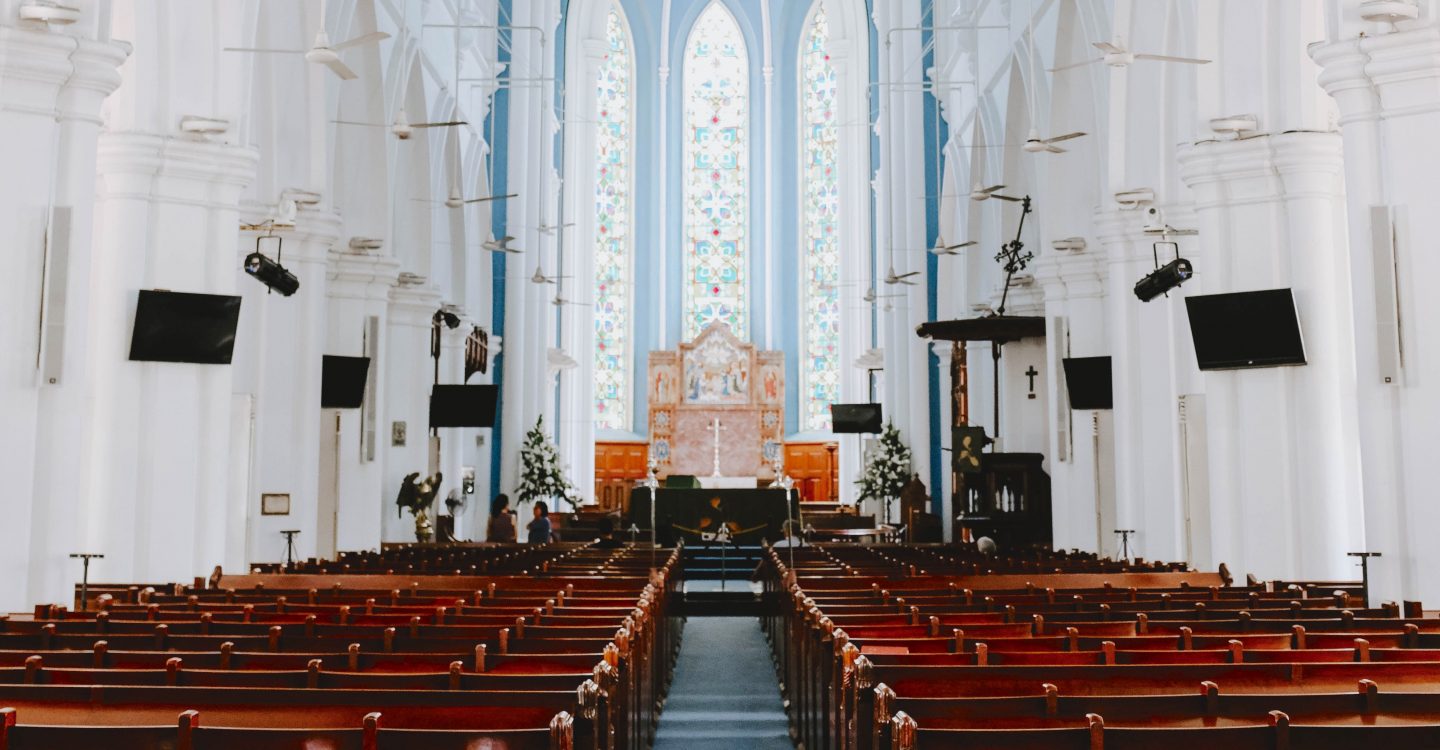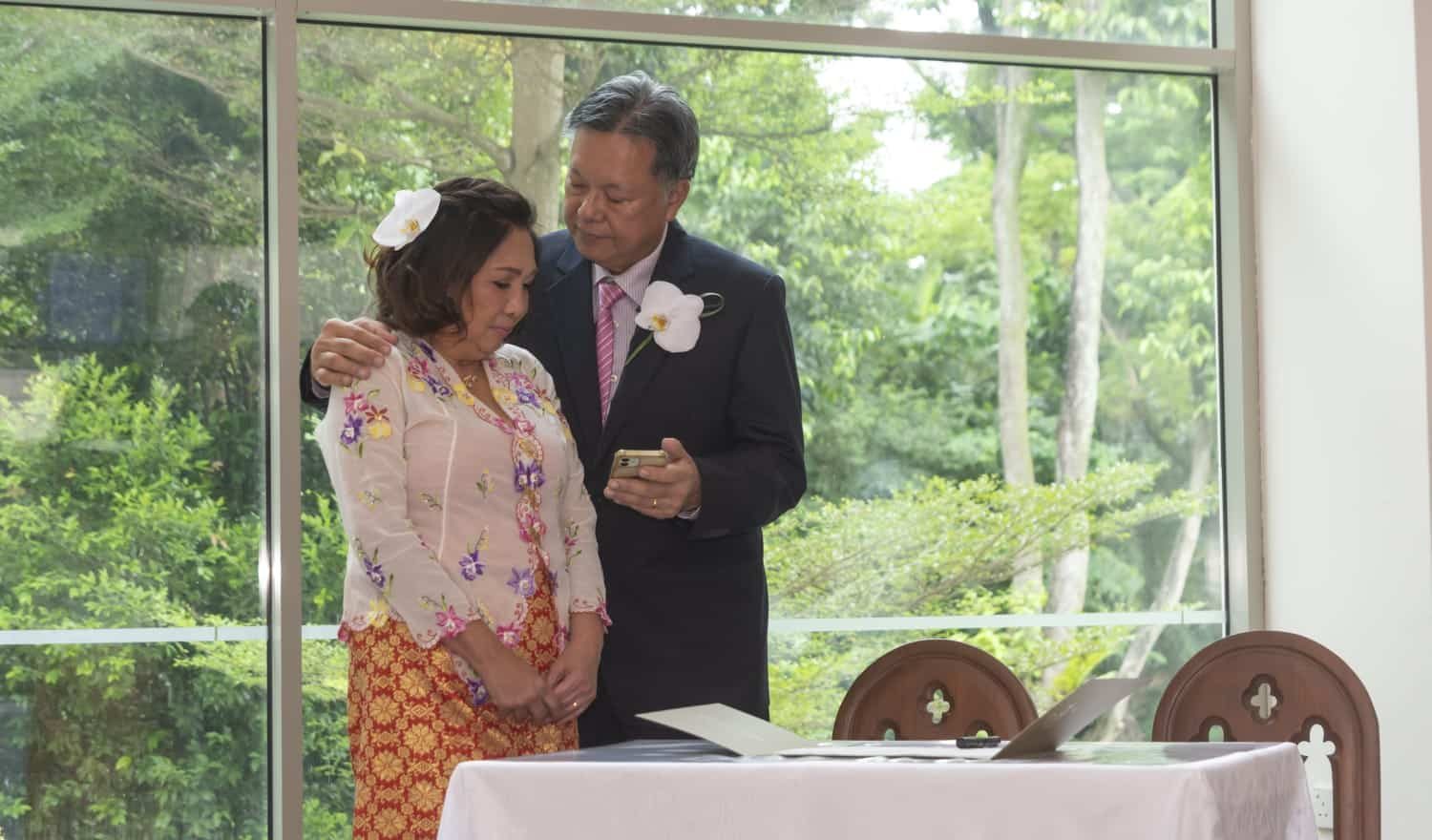Recovering the sacred space
This is the first of three pieces that speak about the sacred space, order and calling of our city.
Rev Canon Terry Wong // September 17, 2018, 6:00 am

Photo by Adrien Olichon on Unsplash
There was a time when God was worshipped only in one particular building, found only in one particular city.
Psalm 122 captures the love and reverence that devoted Jews had for the holy temple in the holy city of Jerusalem.
With the coming of Christ, the worship of God is now decentralised and “everywhere”. As Jesus told the Samaritan woman, “the hour is coming when you will neither on this mountain, nor in Jerusalem, worship the Father” (John 4:21, NKJV).
Today we no longer worship in a temple, because God’s dwelling place is with His people worldwide.
Such is our freedom to worship Him – everywhere and in any building; where God’s people gather, the sacred can be found.
The same Jesus, whose sacrifice tore away the veil of the temple, also taught us that when two or three are gathered in His name, that space is made holy by His presence (Matthew 18:20).
But alas, this accessibility to God does come with a concern. How easily our minds slide from the notion that everything is truly holy … to the notion that, therefore, nothing is particularly holy.
How easily we slide from the notion that everything is holy, to the notion that, therefore, nothing is particularly holy.
If our faith did have one central, identifiable sacred shrine, we would probably venerate it, protect it and speak gently and reverently about it.
But because we have a multitude of churches, some worshipping in cinemas and secular halls, our sense for what is sacred can be diffused.
If any place can be holy, then nowhere is particularly holy.
“Everything” in theory can sometimes mean “nothing” in practice.
While I am not hung up about using what is modern and current, changes in the way services are run often sweep away what we grew up with, and we might lose the sense of the sacredness of the church as well.
In modern Singapore, after 50 years of amazing success, churches here are in desperate need to keep and grow their sacred nature and presence in the city.
Revisiting this ancient psalm is helpful. It reminds us of the need to recover our sacred space, canon (order) and calling in the city.
Gathering in the city
Psalm 122:1-2 says:
I rejoiced with those who said to me, “Let us go to the house of the Lord.”
Our feet are standing in your gates, Jerusalem.
Three times a year, during the major festivals, faithful Hebrews made the trip to Jerusalem.
This city was one of the highest peaks in Palestine — the journey there would certainly be an upward one.
As the pilgrims travelled, their routes snaking through villages, cities and towns, songs for the journey were sung, Psalm 122 among them. They were all headed in the direction of Jerusalem. It was the centre of their lives.
Revisiting Psalm 122 reminds us of the need to recover our sacred space, canon (order) and calling in the city.
Scattered as congregations are in Singapore, each gathered community is equally sacred. We need to centre our lives around these sacred spaces.
As pilgrims, we journey through the “secular” to the sacred gatherings. Sometimes, this can feel like a difficult uphill climb.
It is much easier to stay in the valleys of our toils, or be distracted by the shrines of the world as we make the upward climb.
Courage and joy are needed, and this need starts before we make the climb.
Notice that the psalmist rejoices at the thought of going to Jerusalem, even before the trip begins (Psalm 122:1). Even if we stand on worldly ground, our desire and joy for the sacred must have been seeded beforehand.
If the church is like the world, then Sunday worship or a weekday cell meeting is just another event. It may be different from our regular schedule, but just “same-same”.
Honouring the holy
However, when we recognise the holy — and thus like Isaiah, recognise that we are amongst men of unclean lips (Isaiah 6:5) — we know we cannot remain here for too long.
The trip to the sacred needs to be made.
“Christianity is essentially a social religion; to turn it into a solitary one is to destroy it.”
In the midst of the unholy, recognised for what it is, the disciple gazes at the sacred space. He centres his life on it.
And when a fellow believer says, “Let’s go!”, he responds with joy, not a dutiful sigh of “I suppose I have to.”
And yes, this sacred space is communal.
Speaking of the Sermon on the Mount, John Wesley, the founder of Methodism, once said:
“In order fully to explain and enforce these important words, I shall endeavour to show, First, that Christianity is essentially a social religion; and that to turn it into a solitary one is to destroy it.”
The English writer CS Lewis, author of The Chronicles of Narnia, certainly agreed.
The psalmist rejoices at the thought of going to Jerusalem, even before the trip begins (Psalm 122:1).
In his book The Great Divorce, he paints hell as a place not of fiery torment, but eternal solitude and misery.
Indeed, as the writer to the Hebrews tells us in Hebrews 10:24-25:
And let us consider how we may spur one another on toward love and good deeds. Let us not give up meeting together, as some are in the habit of doing, but let us encourage one another – and all the more as you see the day approaching.
May every church continue to honour what is sacred, gathering to pray, worship and hear God’s Word.
This article was first published in the Courier Online magazine, an online publication of St Andrew’s Cathedral, and is republished with permission.
Reflection and Discussion
1. Consider these statements: “If our faith did have one central, identifiable sacred shrine, we would probably venerate it, protect it and speak gently and reverently about it. But because we have a multitude of churches, some worshipping in cinemas and secular halls, our sense for what is sacred can be diffused.” Do you agree? If so, what examples can you give of this happening?
2. Reflect on Psalm 122:1-2. What relevance does this Old Testament verse have for Christians today?
3. What does it mean for you, personally, to “honour what is sacred” as we gather to pray, worship and hear God’s Word?
We are an independent, non-profit organisation that relies on the generosity of our readers, such as yourself, to continue serving the kingdom. Every dollar donated goes directly back into our editorial coverage.
Would you consider partnering with us in our kingdom work by supporting us financially, either as a one-off donation, or a recurring pledge?
Support Salt&Light



